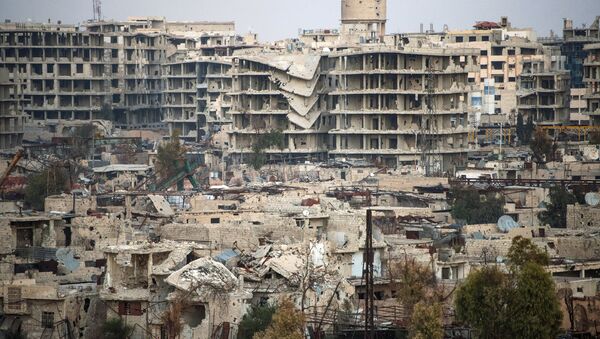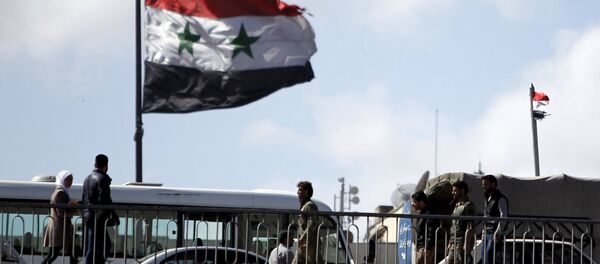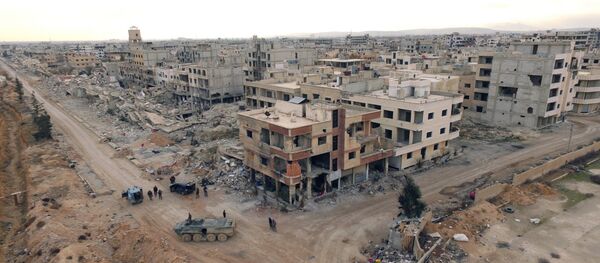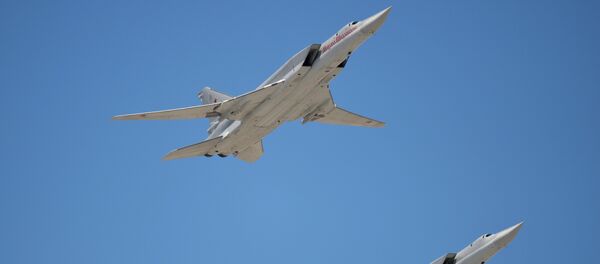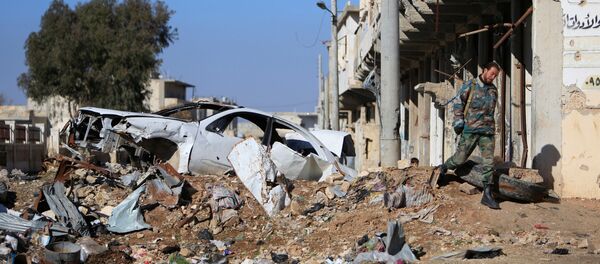Khaled Issa, a representative of the Democratic Union Party (PYD), a leading Kurdish political party in northern Syria, called the draft a "positive step," adding that for the first time in a very long time specific proposals on how to resolve the Syrian conflict through diplomatic means have surfaced.
"Sadly, the opposition is largely interested in how to get rid of the current regime and oust Bashar al-Assad. They are also concerned with who will receive power in the interim. They don't have a clear-cut vision or detailed suggestions on institutional reforms," he lamented.
The document, which Sputnik published on January 31, suggests changing the official name of Syria to the Syrian Republic. But Qadri Jamil asserted that removing the word "Arab" is not a matter of principle.
"We need to review the balance of power and the mood. [We should also determine] whether this will help to resolve the crisis or exacerbate the situation," he said.
The draft states that Syria's political system should be "based on the principle of political pluralism," adding that "ideological diversity shall be recognized in Syria."
This comes in sharp contrast to the current political system in the country, RBC asserted. It is based on Ba'athism, an ideology which combines the principles of Arab nationalism, pan-Arabism, Arab socialism and anti-imperialism, calls for the establishment of one-party states and is adverse to political pluralism.
The analyst also pointed to the limited use of the word Islam in the text of the draft. "Some Islamic political forces will be against this. Then comes the legal issue of how to write this into the law so that the rights of non-Muslims would not be infringed upon," he said.
The Kurdish issue is another point of contention which Damascus will have to deal with. The Syrian Kurds, primarily the PYD and its armed wing, known as the People's Protection Units (YPG), have been empowered by their successes on the battlefield, leading to calls for greater autonomy and recognition.
Khaled Issa said that the Kurdish cultural autonomy is a step in the right direction, but added that this was not enough.
"Various other ethnicities whose rights have not been enshrined [in the draft constitution] live in Syria along the Kurds," he observed.
Issa further said that the draft needs to be reworked since it does not fully take into account national and religious aspects of the Syrian society.
Never miss a story again — sign up to our Telegram channel and we'll keep you up to speed!
